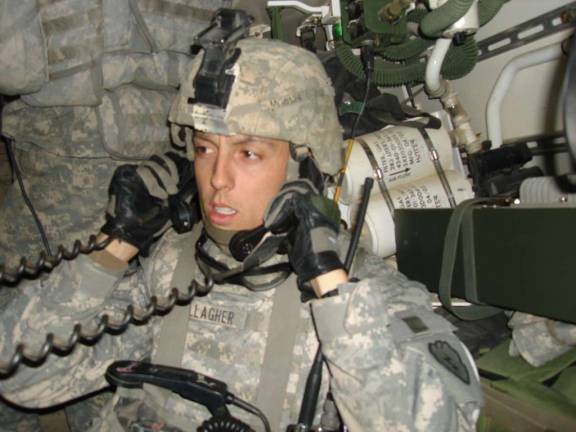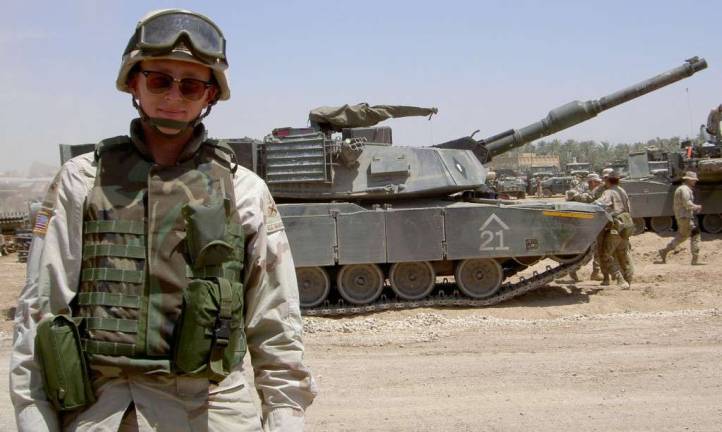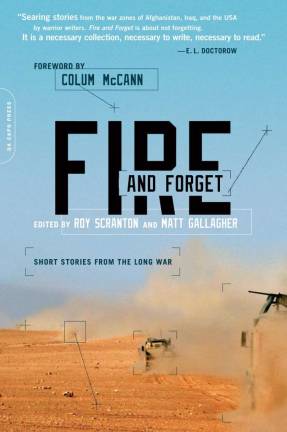Fire and Forget: Local Vets Publish Short Stories of War



"We decided we needed to find the best writers coming out of these wars, put them together to showcase that kaleidoscope of war, the different perspectives that have come out," said Scranton.
"We were looking for storytellers, craft makers, people who viewed their writing as art," added Gallagher. Being veterans themselves, the editors were more sympathetic, but also more critical, of the writing they received. Some stories even managed to surprise them.
"When these stories came in, we walked away the same way we hope our readers do - feeling inspired or disturbed, or hollow. I don't think there's any veteran out there who's seen it all," said Gallagher.
The men chose to keep the collection purely a work of fiction, although their writing group welcomed all genres.
"Fiction lets us bring out the consistencies and the universals that get at something deeper," said Scranton, who just completed his first novel War Porn. However, the contributors' real-life experiences certainly come through on each page.
"It says something important about the complexities of the veteran's experience in coming home. It's easy to slap the PTSD label on people, but there's a whole set of things you have to deal with. In the case with the protagonist in that story gets out of the army and he's on the job market and his sergeant jokes with him, 'What are you going to do, put 'shoot, move, and communicate, on your resume?' There's no place for these skills," said Scranton.
The editors also contributed a story each to the anthology, and hope their book will help bridge the gap that exists between civilians and the military. "There is absolutely a military-civilian divide," said Gallagher. "The reality is now these veterans are back in American society. It's up to all of us on both sides of that divide to figure out how to come back together again because it's not a healthy thing for democracy to have them separate."
The title of the anthology is taken from the term 'fire and forget,' which comes from weapon systems, usually missiles, in the military. Once these weapons are fired, they seek their own target and don't require any additional guidance. Scranton said, "The title stuck with us because it really speaks to the double-edged problem we face with what to do with our experience at war. On the one hand, we are responsible to tell our stories to remind people what happened. On the other hand, there's nothing most of us would rather do than leave it behind and move on."
Join Matt and Roy at the Half King for a reading of Fire and Forget on March 18th at 7 p.m.